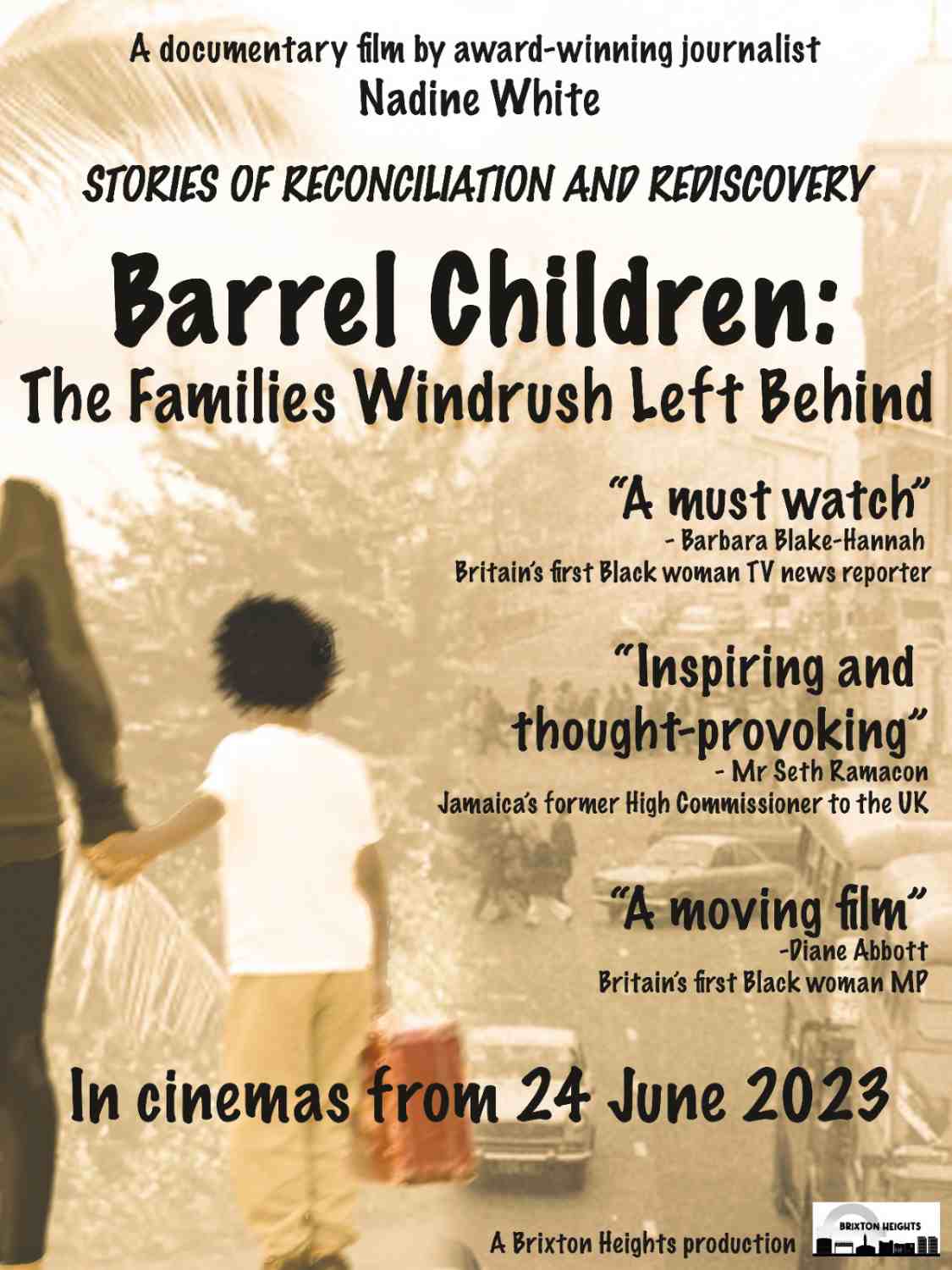A poignant and wonderful film: Diane Abbott reviews 'Barrel Children'
Former barrel child, the renowned Brixton record shop owner and music producer, Blacker Dread | Image courtesy of Brixton Heights CIC
3 min read
An extensively researched and moving account of the children of the Windrush generation separated from their parents, Nadine White has delivered a great film debut
I recently saw the documentary Barrel Children: The Families Windrush Left Behind directed by the award winning journalist Nadine White. It is a wonderful film and everybody who has a chance should see it.
There has been extensive coverage of the Windrush generation, so-called because the earliest cohort of Caribbean migrants that arrived in Britain after the war came in a boat of that name.
But there are aspects of the Windrush story that have not been fully explored. One is family separation.
The uncertainties of life in England, including the difficulties getting work and decent housing, meant that most of the earliest migrants left their children behind. They planned that their children would be looked after temporarily by grandparents and join them in Britain later.
These were the “barrel” children of the documentary title, named after the barrels full of food and clothes migrants sent back to their children and family. But the separation was often longer than expected and family relationships sometimes did not recover from the trauma of being apart. For her documentary Nadine interviews many of the “barrel” children who are now adults and it is moving to see the pain in their faces when they recall being separated from their parents and how it affected them. You feel that for some this is the first time that they spoken about these feelings. Their biological parents had often migrated when the children were too young to understand.
It nearly happened to me
Brought up by their grandparents, they assumed that these were their actual mother and father and built up powerful emotional ties. When these children finally came to Britain to be reunited with their biological parents, they would often be confused, frightened and upset.
It was sometimes as difficult for the biological parents. They would have saved money for years to bring their children to join them in Britain, only to feel rejected. A further complication was that some parents went on to have children in Britain after they had migrated. This left the children in Jamaica, who they eventually sent for, feeling like outsiders.
 There was another side to the separation story. Some Caribbean migrants who had children in the United Kingdom and North America sent the babies back to grandparents to be brought up because of housing issues and the need for mothers to work. It nearly happened to me. My mother assumed that she would send me back to her grandmother in Jamaica as her sisters in Canada and America did. But my father put his foot down. I was his firstborn and whatever the practical difficulties he was determined that I was not going anywhere. It was only when as a teenager I met my grandmother in Jamaica for the first time that I realised that I was one of the few of her grandchildren born abroad that she did not bring up.
There was another side to the separation story. Some Caribbean migrants who had children in the United Kingdom and North America sent the babies back to grandparents to be brought up because of housing issues and the need for mothers to work. It nearly happened to me. My mother assumed that she would send me back to her grandmother in Jamaica as her sisters in Canada and America did. But my father put his foot down. I was his firstborn and whatever the practical difficulties he was determined that I was not going anywhere. It was only when as a teenager I met my grandmother in Jamaica for the first time that I realised that I was one of the few of her grandchildren born abroad that she did not bring up.
The documentary reminds us that involuntary Black family separation goes back to slavery and discusses the psychological effect of forced family breakdown. Nadine has done extensive research. She weaves together evocative black and white footage from the fifties with poignant interviews with the adults separated from their parents as children. A great documentary. Do go and see it.
Diane Abbott is Independent MP for Hackney North & Stoke Newington
Barrel Children: The Families Windrush Left Behind
Directed by: Nadine White
Cinema: Ritzy, Brixton, 17 & 20 July – then touring nationally over summer
